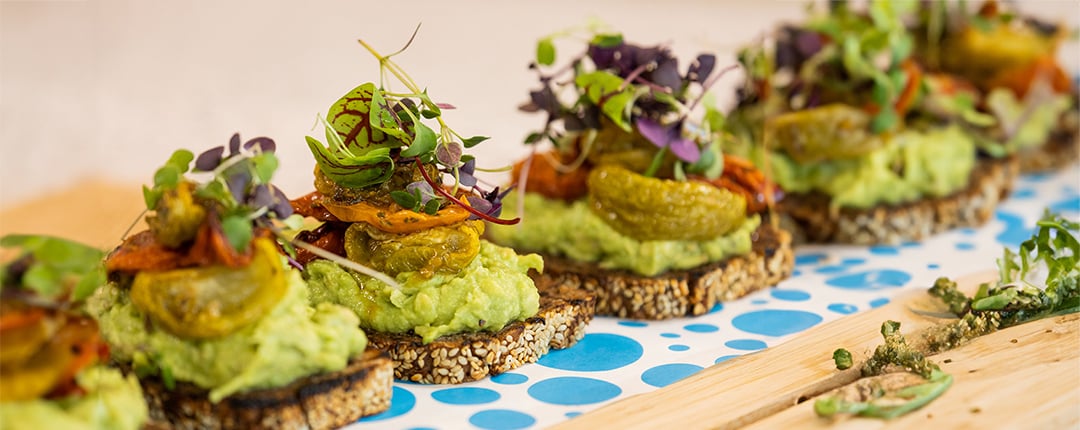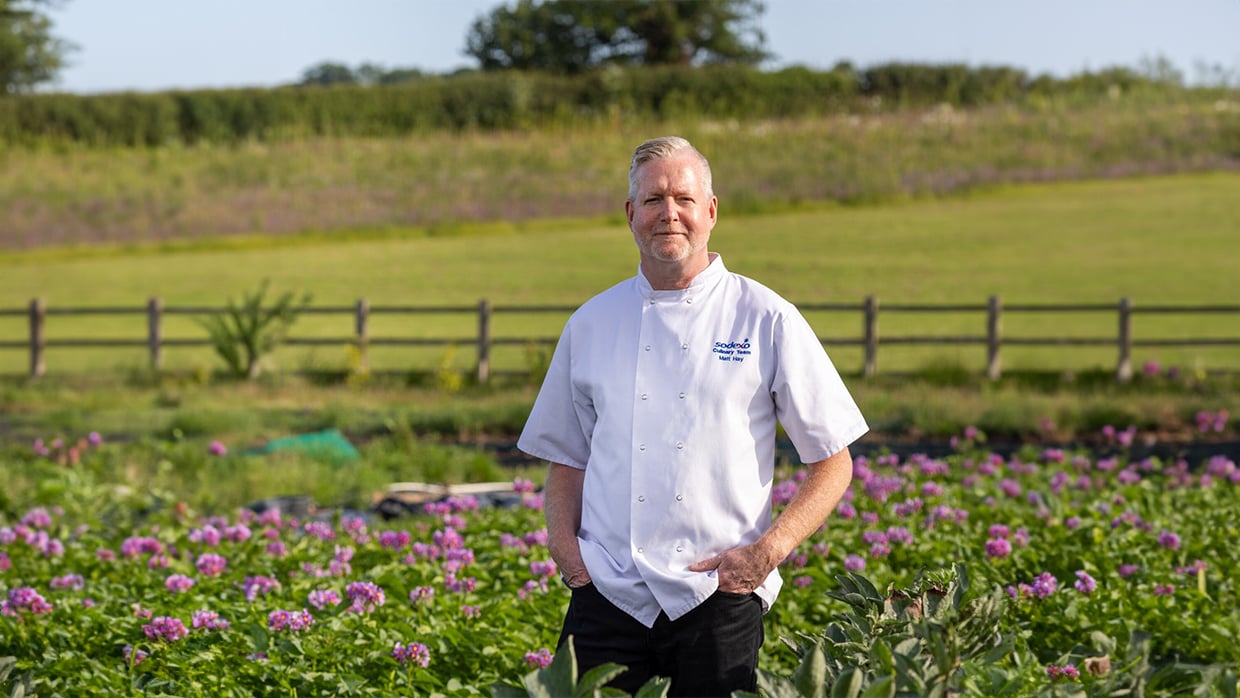
Food as a lever for climate action
From rebalancing menus toward plant-based options to working hand-in-hand with suppliers to decarbonise its value chain, Sodexo is proving that food is a powerful lever for climate action. This Net Zero week (5-11 July) Matt Hay, Head of Culinary for Sodexo in the UK & Ireland, explains more.
The food industry accounts for around a third of global greenhouse gases (WWF), yet research suggests this figure could be halved if more people made conscious choices about the impact produced by the meal on their plates.
As a large food services company, Sodexo serves around one million meals every day in the UK alone, and we know we need to reimagine the role of food in a sustainable future. Our actions in this area are just one element in our journey to decarbonise our business by 2040.
Reducing the carbon footprint of our menus
Reducing the carbon footprint of our menus, which include 18,000 recipes, is an ambitious but necessary step in this journey and we are actively doing this through the development of low carbon dishes.
Using guidance from WWF, we’ve defined low carbon meals as those which generate 0.9kg of CO2e or less during production and set ourselves a target of ensuring 70% of our main meals will be low carbon by 2030.
Meeting customers’ net zero expectations
Our customers want to help protect the planet by making more sustainable food choices. We know this from listening to them and through research including our sustainable food barometer research which revealed that 68% of people view sustainable food positively.
Yet only 34% are committed to choosing sustainable food when it is available. To shift this we have to ensure the sustainable meals we produce are not only delicious and nutritious; they have to be appealing too. This will encourage our customers to choose the plant-forward, low carbon options.
We do this in a number of ways. Our chefs are focused on using sustainable, plant-forward ingredients – such as the Future 50 ingredients identified by the WWF as having a lower environmental impact – and dialling up the umami to really boost the flavour profile of our dishes.
Red meat has an extremely high carbon footprint, with one 100g serving of beef producing 35.5kg of CO2e, and lamb 19.9kg . Three years ago, 30% of our recipes contained red meat and we’ve reduced this to 12%. Rather than using meat substitutes we encourage our chefs to use whole plant foods that pack a big flavour punch.

Matt Hay
Head of Culinary for Sodexo in the UK & Ireland
Helping customers make informed food choices
Positioning menu options to customers plays a key role in the choices they make. Avid meat eaters won’t necessarily want to choose a meal that’s labelled as ‘vegan’, but will be attracted by flavours, texture and freshness of dishes, so we focus on presenting vibrant, appetising dishes.
For example, our Modern Recipe restaurants include a plant destination counter to promote flavoursome, healthy, low carbon dishes.
Helping customers make informed choices is something we strive to do, and one of the ways we do this is through the use of carbon labelling. This enables them to easily see and understand the environmental impact of their food choices.
Sourcing local and reducing food waste
Efforts to reduce the carbon footprint in food production start with the supply chain and ends with waste management. To deliver a sustainable food offer you have to ensure you source ingredients that are seasonal and local wherever possible – over 70% of our food supply chain is sourced in Britain, with seasonal variations. You also need to have an ambitious target to reduce food waste – our aim is to cut food waste by 50% by 2025; a target we’re on course to meet.
At Sodexo our path to net zero is ambitious, but we are keeping a laser focus on our target and bringing our customers with us by continuing to provide delicious, nutritious and sustainable meals every day.
You may also be interested in...
Our social impact